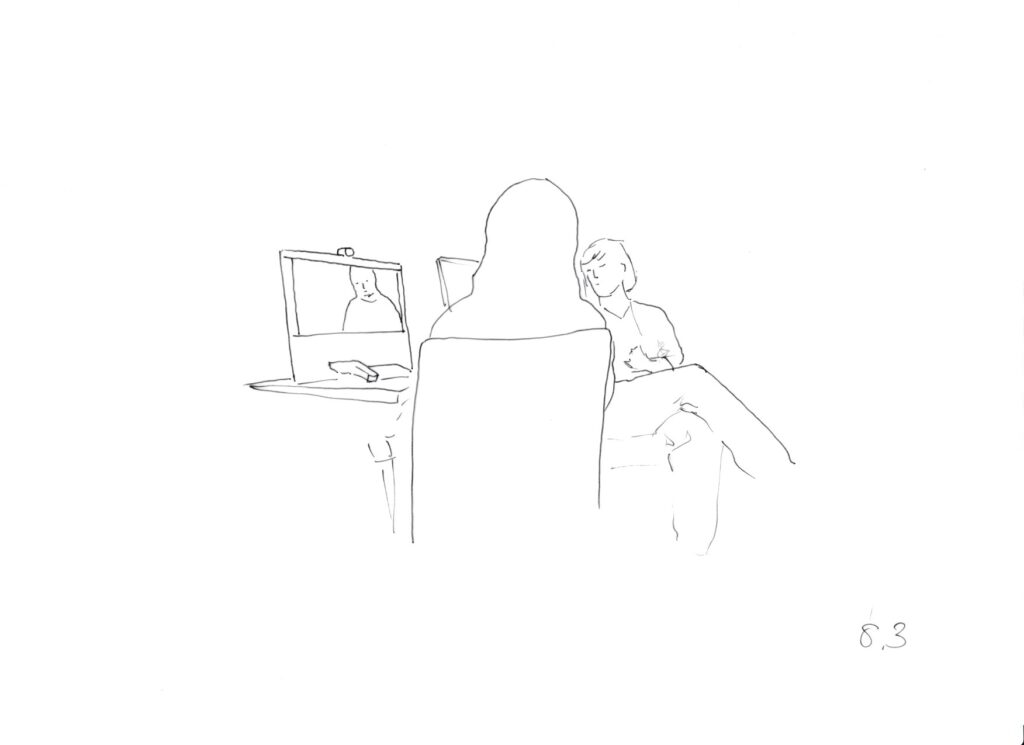
In collaboration with Jessica Hansen from Østfold University College and Espen Stranger-Johannessen from INN, the DigiMulti conference Digitalization and practices of inclusion was organized on 19 October 2022 around the following reflection:
New technologies are developed and implemented to solve a range of tasks in society, and digitalization processes exist in various contexts and forms. Technology is used to facilitate participation in different arenas, from mHealth and mobile banking services to improve living conditions to robot pets to improve elderly care and dementia patients’ care. Digitalization is often understood as the solution to several problems, but how does this play out in the practical technology use? Is the focus on hardware and software or on the human and social systems (cf. Warschauer 2003, p. 6)?
The concept of inclusion encompasses policies or ideologies “used by governments and other policymakers to change or improve schools, workplaces, housing, or other community institutions so as to adjust them to meet human diversity, and in particular, to embrace people who experience exclusion” (Haualand 2017, p. 317). The concept in itself is not unproblematic; who should “be included” and who is responsible for this inclusion, into what? In the seminar, we investigate practices of inclusion critically, examine and discuss empirical work and theoretical approaches in studies of technology’s role in practices of inclusion. Inclusion is thus considered as social practice, related to digitalization processes, and it is viewed from different theoretical perspectives, with a focus on educational contexts and linguistic aspects of inclusion (Krüger et al. 2021, etc.).
It was a hybrid event with speakers and guests from Lithuania, Sweden, Zambia and Norway. Many thanks to research assistant Florian Gorqaj for his invaluable help!

The programme was as follows:
11.00-12.45: Digitalization in and of education
11.00-11.30 Christina Olin-Scheller (Karlstad University / INN): Literature teaching via social media: The quality of dissemination and use of digital lesson planning at lower secondary school
11.30-12.00 Florence Namasinga Selnes (OsloMet): Digitalization as a driver of inclusion in education: Experiences from a journalism training institution in Uganda during the COVID-19 (online presentation)
12.00-12.30 Stine Brynildsen and Sonja Nygaard-Joki (HIOF): Adult learners’ experiences of using translanguage-enabling technology in second language acquisition
13.45-15.00 Media use by children, youth and parents
13.45-14.15 Egle Celiešienė (Lithuanian College of Democracy) and Ebba Ossiannilsson (Swedish Association, for Open, Flexible and Distance Education): Digital Inclusion for All (DI4all)
14.15-14.45 Hilde Thyness (INN): Mediagrams for enhanced inclusion?
15.15-17.00 Multilingual perspectives
15.15-15.45 Jessica B. P. Hansen (HIOF): Video-mediated interpreting – a matter of efficient service provision or poor service quality?
15.45-16.15 Espen Stranger-Johannessen (INN): Multilingual digital stories as inclusion in practice
16.15-16.45 Kristin Vold Lexander (INN): Practices of inclusion in digital interaction at the multilingual workplace
